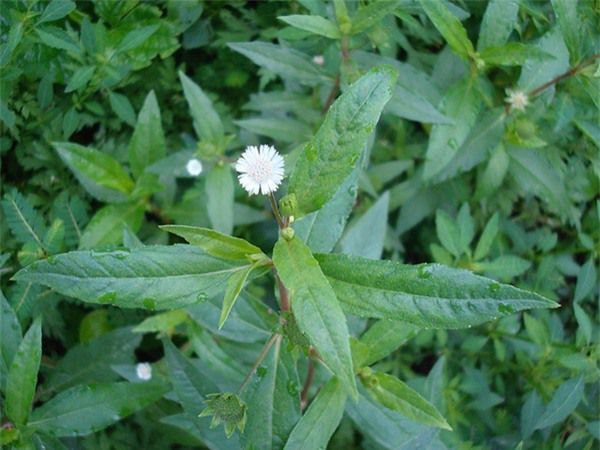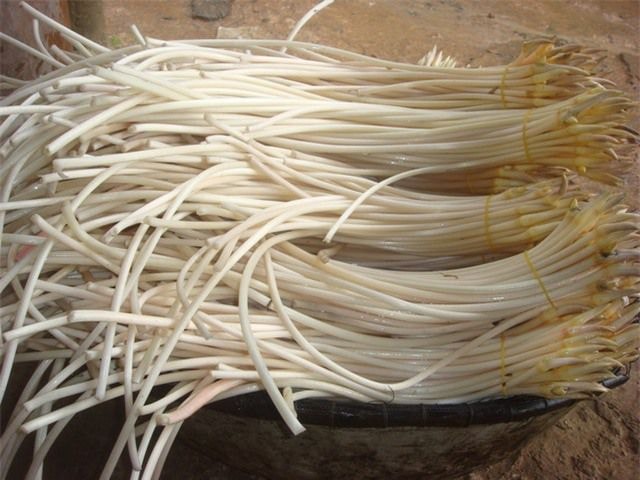Some medicinal plants have hemostatic effects.
When bleeding, you can use one of the following simple, easy-to-find medicinal herbs to apply pressure to stop the bleeding.
In daily life, when suffering from minor, shallow wounds that bleed, first you need to raise the injured part, use a clean towel or your hand (if there is no towel) to press firmly on the wound, then you can use one of the following simple, easy-to-find medicinal herbs to bandage to stop the bleeding.
Eclipta prostrata: According to Oriental medicine, Eclipta prostrata has a sweet, sour taste and is effective in treating dysentery and bloody stools. In addition, people with menorrhagia, nosebleeds, bleeding hemorrhoids, and bleeding wounds often use Eclipta prostrata for treatment.
 |
| Soot |
Prescription: Cut off the roots of the Eclipta prostrata, wash, dry, chop, and roast it black (retain the properties), wash the banana leaves, chop, dry, and roast them black (retain the properties), wash the hair with soapberry water, dry, and burn it to charcoal. Use equal amounts of the above three ingredients, grind, and sift.
Store in a bottle or sealed plastic bag. Store in a dry place. After disinfecting the wound, sprinkle hemostatic medicine on the wound to cover it, place gauze or clean cloth on the wound, and apply pressure. Change the medicine once a day.
Dracaena: There are two types of Dracaena, the type with red leaves on both sides and the type with red leaves on one side and green on the other. Both types are used as medicine, but the type with red leaves on both sides is better. Dracaena has a bland taste, cool properties, and has the effect of cooling the blood, nourishing the blood, stopping bleeding, and dissolving blood stasis, reducing rheumatic pain, bone pain, and treating menorrhagia, leukorrhea, dysentery, gonorrhea, dengue fever, and hematuria...
Average dosage is 20 - 30g fresh leaves, 8 - 16g dried leaves for decoctions, can be used alone or in combination with other herbs.
Lotus root: In traditional medicine and folk experience, lotus root is used with the medicinal name of Lien Ngau, has a sweet taste, slightly astringent due to the resin, cool and neutral properties, non-toxic. Raw medicinal herb is cold, cooked is warm, has the main effect of stopping bleeding, nourishing blood and regulating menstruation.
 |
| Lotus shoots |
Cure nosebleeds: 30g fresh lotus root (can be used alone or combined with chives, equal amount), wash, crush, squeeze to get the juice and drop into the nostril, the bleeding will stop immediately.
Irregular menstruation: 20g lotus root, 12g bear root (roast until all roots and hairs are burnt), dry, grind, sift into fine powder, mix with honey or sugar water to make pills the size of green beans. Take twice a day, 50 pills each time with hot water.
Menorrhagia: Lotus root, Scutellaria baicalensis, and Asarum each 12g; Gardenia fruit 12g; Rehmannia glutinosa 12g; Magnolia officinalis and tortoise shell each 20g; Rehmannia glutinosa 16g, Rehmannia glutinosa bark 10g, and licorice 4g. Boil and drink one dose per day.
In addition, traditional medicine also uses lotus shoots (medicinal name is nguon tiet) with the same hemostatic effect as lotus shoots.
According to Health and Life


